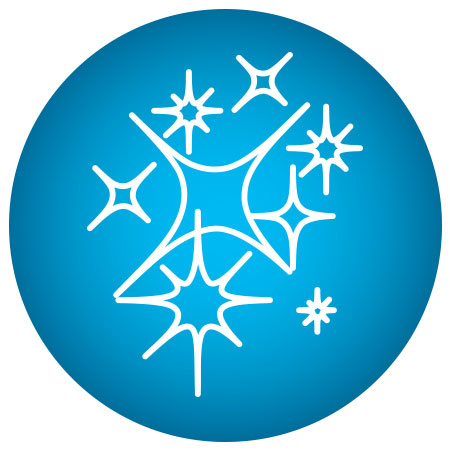Days of Hope
| June 1, 2021A rope of hope before we tumble into mourning
With Shavuos, the Jewish year peaks. And then it goes downhill.
From the 20th of Sivan — a day that among some Ashekanzic communities used to be a fast to commemorate the tragedy of the Crusades and the Chmielnicki massacres — we descend to the 17th of Tammuz, reaching the lowest point on Tishah B’Av.
But there’s a rope of hope right at the beginning of the steep tumble — the 23rd of Sivan. Take out your Megillas Esther; you’ll see that Mordechai and Esther sent out the letters giving Jews the right to defend themselves on the 23rd of Sivan.
The 23rd of Sivan was also when the Polish Jews who found themselves on the Russian side of the new border created by the Molotov-Ribbentrop Non-Aggression Pact were deported to Siberia. The Russians had offered them Soviet citizenship, but many of the religious Jews refused to pledge allegiance to the atheist government, and this was their punishment.
Devastated, sure this was the worst thing that could possible happen, hundreds of thousands of Jews were crammed into unheated train cars that took them to the freezing tundra of Siberia.
Among the exiles was Reb Itzikele Pshevorsk ztz”l. He consoled his brethren saying, “Today is the 23rd of Sivan. On the day when Mordechai and Esther sent the letters of salvation, nothing bad can happen.”
After a few horrific years, the exiles returned to Poland and realized that those who had been left behind were machine-gunned down into mass graves when the Nazis violated the treaty and invaded Russia. Being exiled to Siberia had saved their lives.
I feel a personal connection to the 23rd of Sivan as it’s my birthday as well as my wedding anniversary! In addition, the great-grandmother I’m named after (Baila Gittel) was the one who insisted that her family not sign up for Soviet citizenship, saying that believing Jews should have no connection to an institutionally atheist regime, thereby saving her family. She passed away in Siberia and it took her sons a few days to warm up the frozen ground in order to bury her. Her grave remains unmarked and unvisited in a forsaken, ice-covered forest. May this devar Torah be an aliyah for Baila Gittel bas Tzvi Yehudah.
Wonders of Jewish History
The greatest wonder of history is the eternity of the Jewish People. Here, we explore moments when we see Hashem’s Hand at the helm orchestrating events.
Following the death of Rabi Yehudah Hanasi, the yishuv in Eretz Yisrael began declining rapidly. This was primarily due to Roman persecution, which became unbearably intense when the Holy Roman Empire took on the then-new religion of Christianity.
Then things got worse. The east section of the by-then split Roman Empire — the Byzantine empire — conquered Babylonia, where Jews had found a haven and Torah shebe’al peh was flourishing. It seemed that all would be lost; Jews were safe nowhere.
Suddenly, refuge came from the most unexpected source — Islam. The Muslims pushed back the Byzantine Christians, creating a stable environment in which the Geonim would continue the development and preservation of Torah.
The Line That Changed Me
“I accept what I cannot change.”
I tell this to myself when I realize that one of my children is going to be struggling with challenging middos throughout his life. While there is much that I can do, there is much that I can’t.
—G.M.
Rising Above
In light of the Meron tragedy, many said those who died were korbanos, even comparing them to Nadav and Avihu — bikrovai ekadeish. But I still don’t understand; why did they need to die?
Rebbetzin Sara Yehudit Schneider: Good question. There are different korbanos. A Korban Chatas is easier to understand. Spiritual debt has been incurred, and the cleansing process generally entails some middah k’negged middah suffering. There are individuals that —“kavshei d’Rachmana,” for reasons known only by Hashem — are chosen to serve the klal in this capacity. The closer we are to the people who are taken, or the more we feel the pain of their loss, the greater the rectification achieved.
A Korban Olah is different. Generally, we keep stretching and growing in order to absorb more and more of Hashem’s light. However, there’s only so much a vessel can stretch. At some point, the vessel must be broken and recreated. At paradigm-shifting moments in the Jewish People’s collective process of growth, we need to be broken and recreated, and again, “kavshei d’Rachmana” — for reasons we don’t understand — there are those who are chosen to serve the klal in this way.
Their sacrifice opens the space for a huge download of ohr chadash that will drive us, collectively, through the major change and aliyah that’s required of us.
Rebbetzin Sara Yehudit Schneider is an author, teacher, and founder and director of A Still Small Voice.
Silent Kindness
With my husband’s sudden passing, not only was our family hit with emotional trauma, there were also a million tasks and duties I now had to assume. The “male” jobs in my house suddenly became my responsibilities. Along with the usual shopping, meal preparation, and attending to children of various ages and stages, I now had to deal with, “Where does the car go for an oil change?” “When is the landscaper going to cut the bushes?” “The sink needs fixing.” “There’s a discrepancy in the phone bill….” So many responsibilities and only one set of shoulders.
The Monday morning after shivah ended, as I left the house for work, I saw my trash can and recycle bins standing neatly at the curb awaiting their pick-up. Who had put them there? It must have been a neighbor. How kind. I made a mental note to take those cans out on Sunday nights.
Well, that task always had a way of slipping through the mental cracks. Yet despite that, every Monday morning, those full cans waited neatly again at the curb, standing testimony to true chesed that went far beyond the week of shivah. Though they never mentioned it, I soon found out that it was my next-door neighbors, the Lindenbergs, who always put my bins and cans out when they went to put out their own. Every Monday morning, week after week, I felt a load roll off my shoulders when I left to work and saw those cans.
Two years later, with every other household task still on my lone shoulders, there’s one small task that is still done for me without any fanfare, but with huge impact. Those cans offer empathy, understanding, and genuine kindness.
Thank you, Family Lindenberg.
—Betty Goldberg, Boca Raton
“Feeling the bitterness of galus is the beginning of Geulah.”
—Rav Aryeh Leib of Gur
(Originally featured in Family First, Issue 745)
Oops! We could not locate your form.








